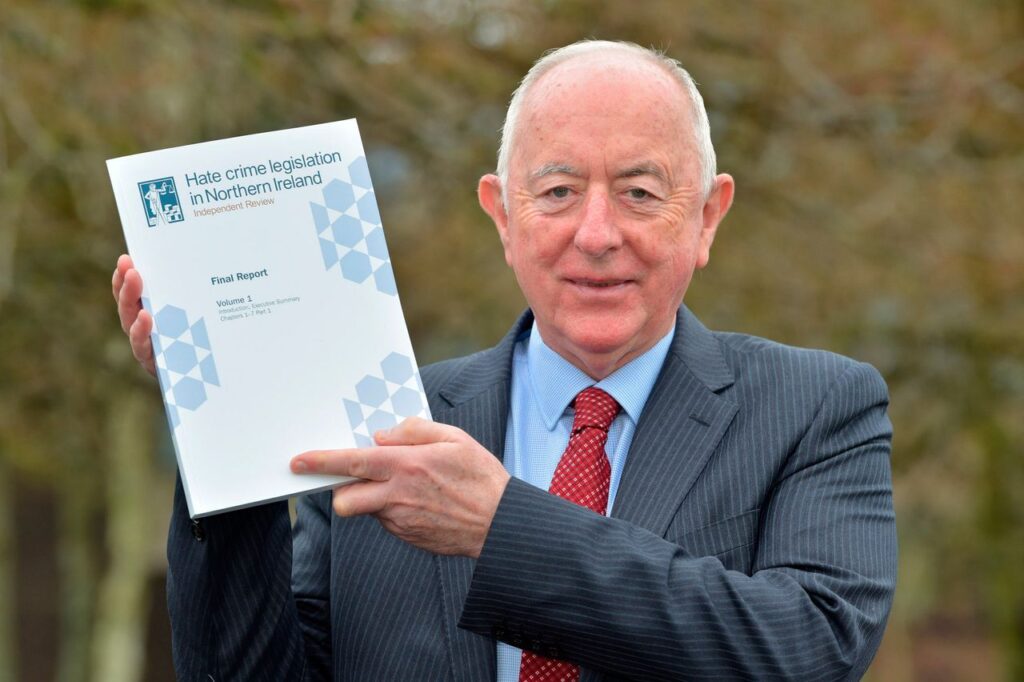As reported in the Belfast Telegraph, concerns that people in Northern Ireland (NI) could soon be prosecuted for hate crimes relating to private conversations in their own homes is set to top the agenda at the FSU’s free speech summit in Belfast tonight (26th January).
Hundreds of attendees will be gathering in the Titanic Hotel for our first ever ‘speakeasy’ event in NI.
The event is taking place as NI’s Department of Justice (DoJ) continues its consultation on a new Hate Crime Bill following a major independent review by Judge Desmond Marrinan.
Following publication of the Marrinan Review in December 2020, the DoJ immediately accepted 22 of his 34 recommendations, including those that would: bring forward a Hate Crime and Public Order (Northern Ireland) Bill, apply a statutory aggravation model to all criminal offences, whereby any offence motivated by hostility towards protected groups is punished more severely; include transgender identity as a protected characteristic; frame legislation to allow more groups to be added to the ‘protected’ list in future; extend the ‘stirring up hatred’ offence so it applied to all the groups on the ‘protected’ list; and prohibit online content that is ‘legal but harmful’.

Judge Desmond Marrinan
FSU Director Dr Jan Macvarish believes current proposals “lack a clear definition of hate” which she warned “will create very bad law”.
“When we go down that road, we end up relying on very subjective perceptions,” she told the Belfast Telegraph, adding: “That not only wastes police time, but it is very unfair on the person being accused of a crime and invites malicious accusations.”
Dr Macvarish also expressed particular concerns that DoJ plans to repeal the ‘dwelling defence’ currently enshrined in the Public Order (Northern Ireland) Order 1987.
“Everyone has the right to have private conversations on the sofa while watching TV or sitting around the dinner table, but those conversations could soon be subject to the law which is an incredible intrusion,” Dr Macvarish said. “We would urge a very serious review of what is being proposed by DoJ. There is an attempt to silence dissenting voices and frame legitimate disagreement in a polarising way.
According to the results of a survey of NI voters commissioned by the FSU in 2022, 60% of those polled said they felt less free to express themselves compared to 10 years ago, while 65% agreed that freedom of speech is hindered by political correctness.
Over half of respondents were also worried they would fall foul of the proposed new laws with greater concern amongst the unionist community.
Four out of five respondents believed robust protections must be included in any new legislation.
The Marrinan Review was commissioned, and its proposals accepted, by officials within Northern Ireland’s Justice Department when Northern Ireland didn’t have a Government. There was no Government in Northern Ireland between 2017 and 2020 and there hasn’t been one since February 2022, when First Minister Paul Givan resigned. As the FSU pointed out back in 2022, this raises important questions as to whether it is democratic for unelected bureaucrats to be proposing such sweeping changes to the law.






